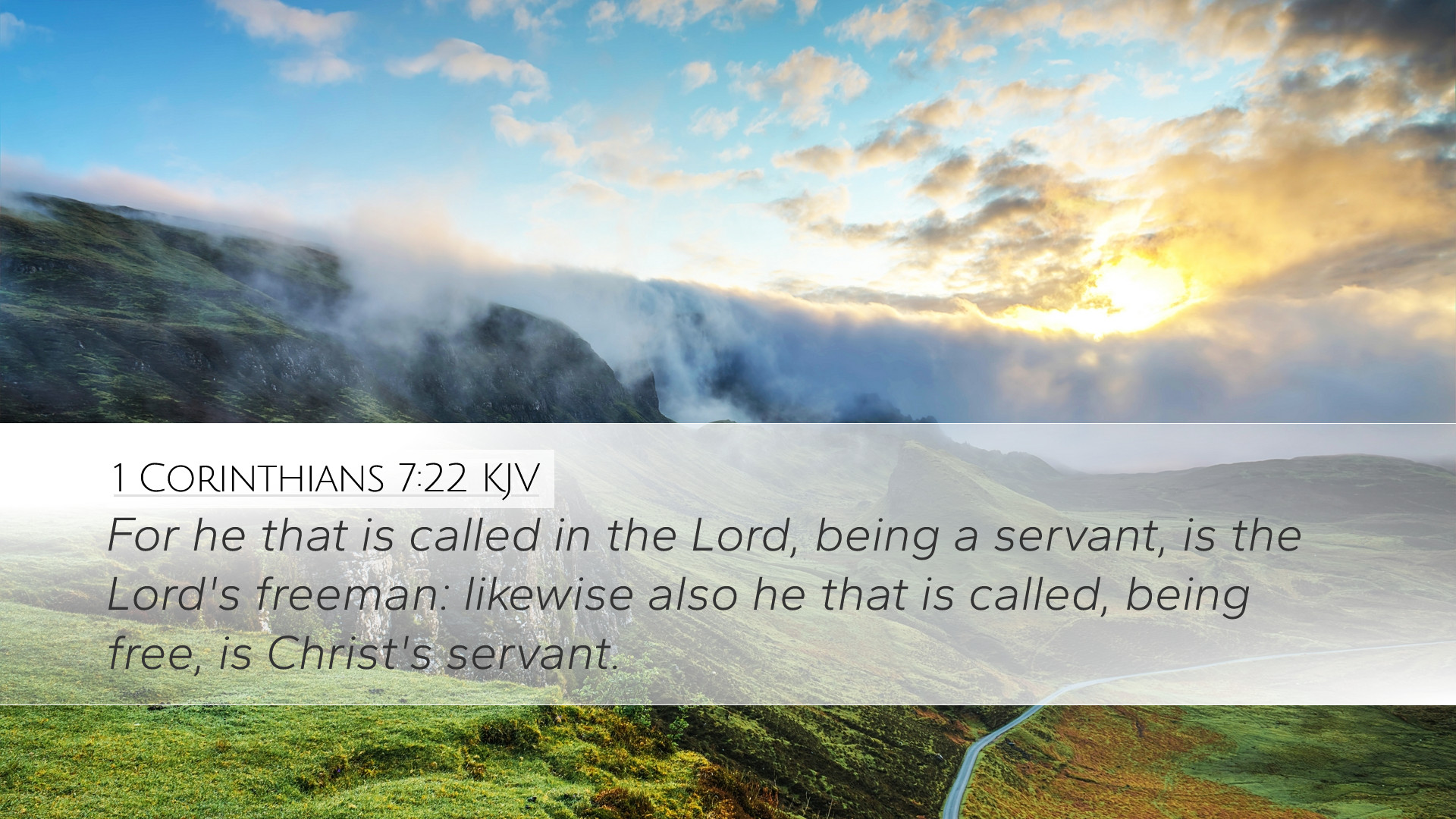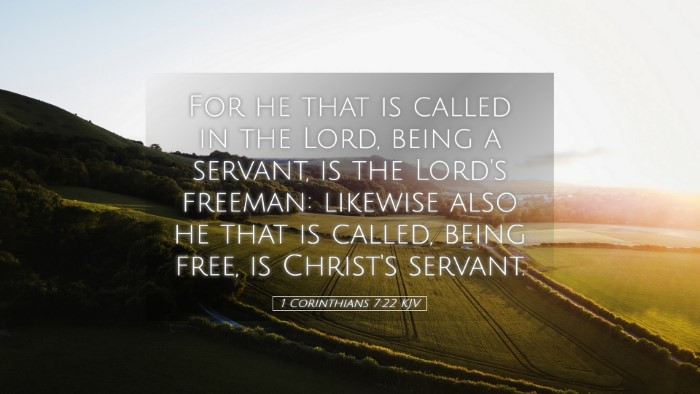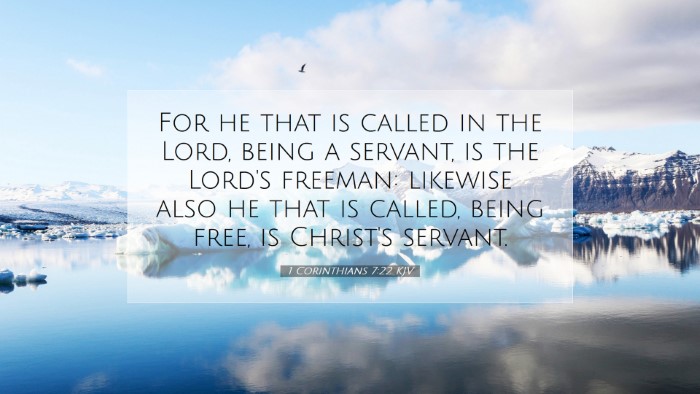Commentary on 1 Corinthians 7:22
Bible Verse: "For he who is called in the Lord being a servant, is the Lord's freeman: likewise also he that is called, being free, is Christ's servant." (1 Corinthians 7:22)
This verse addresses the topic of status and identity in Christ, particularly focusing on the relationship between physical and spiritual freedom. The Apostle Paul, writing to the church in Corinth, emphasizes that one's social or economic status is of lesser importance in the economy of God.
Contextual Background
In the context of 1 Corinthians 7, Paul is writing to address questions concerning marriage, celibacy, and the conditions of one’s social environment. The Corinthian church struggled with issues of morality and identity amid a diverse cultural backdrop. Paul aims to reassure believers that their standing before God transcends worldly status.
Interpretive Insights
-
Servitude and Freedom:
Paul begins by affirming that a servant (or slave) who is called in the Lord is, indeed, the Lord's freeman. This statement highlights the paradoxical nature of spiritual freedom. According to Matthew Henry, this suggests that while the physical condition of servitude may not change, the spiritual reality is that in Christ, one attains true freedom (Henry).
-
Spiritual Identity:
Paul conveys that regardless of one’s earthly status, he is ultimately identified with Christ. Albert Barnes comments that both free and bond are called to serve God, indicating that one's commitment to Christ transcends societal labels. It is in this calling that each believer finds their true identity (Barnes).
-
Equality in Christ:
Paul’s statement emphasizes equality and worth in the body of Christ. As Adam Clarke elaborates, the Lord views His servants equally, regardless of their earthly positions. Therefore, every believer should realize their worth and significance in God’s kingdom, which is not influenced by temporal conditions (Clarke).
-
Responsibility in Freedom:
Moreover, those who are free are encouraged to recognize themselves as Christ's servants. Paul calls for a deeper understanding of freedom. As Paul emphasizes, freedom in Christ is accompanied by a responsibility to serve Him and others (Henry).
Theological Applications
This passage leads to several vital theological reflections and applications:
-
Understanding Christian Freedom:
Christian freedom is fundamentally about serving God and others. This theological principle challenges believers to evaluate how they use their freedom—whether it leads to serving or enslavement to sin and self-interest (Barnes).
-
Service Above Status:
The church must cultivate a culture that seeks to serve above all else, regardless of social standing. There is difficulty in denying societal preferences, yet the cross of Christ invites all into a shared experience of servanthood (Clarke).
-
Radical Equality and Dignity:
In Christ, mere human distinctions (such as wealth, status, ethnicity) dissolve. This challenges prevailing societal norms, stirring the church toward communal living marked by radical equality (Henry).
Conclusion
1 Corinthians 7:22 serves as a profound reminder of the nature of Christian calling and identity. Whether one is enslaved or free by the world's standards, in Christ, each believer is called to a life of true freedom that manifests in servanthood. The implications of this passage are far-reaching, offering a transformative perspective not only for personal faith but for community living among believers.


